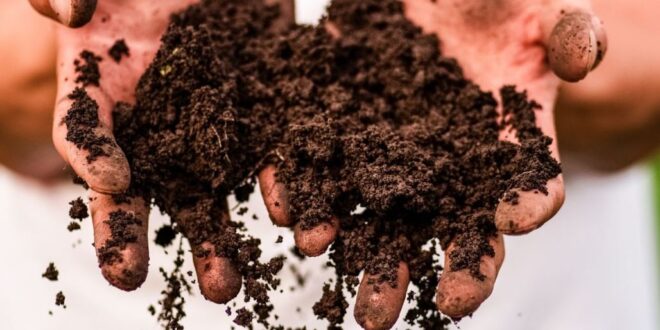In a world teetering on the edge of environmental crisis, there exists a beacon of hope—a humble practice with the power to transform waste into wealth and nourish the very soil from which life springs forth. As we gather to celebrate Compost Awareness Week, it’s not merely a moment to extol the virtues of decomposing organic matter but an opportunity to delve deep into the heart of sustainability, exploring the profound implications of composting for our planet and our collective consciousness.
Composting, at its essence, is a sacred dance—a symphony of decay and regeneration that mirrors the cyclical rhythms of nature. It’s a process as old as life itself, whereby organic materials are broken down by microorganisms, returning to the earth in a form rich with nutrients and vitality. Yet, despite its ancient origins, composting remains a revolutionary act in a society dominated by throwaway culture and disposable goods.
At the core of the composting movement lies a fundamental shift in perspective—a recognition that waste is not a by-product but a valuable resource in disguise. Every apple core, coffee grounds, and fallen leaf that finds its way into the compost bin represents a conscious choice to honour the interconnectedness of all living beings. It’s a small yet profound gesture of gratitude towards the earth, acknowledging our role as stewards of its bounty.
One of the most pressing environmental challenges of our time is the staggering amount of food waste generated each year. In a world where millions go hungry, the sight of perfectly edible food rotting in landfills is both morally indefensible and ecologically disastrous. Composting offers a simple yet elegant solution, diverting organic waste from the landfill and transforming it into a valuable resource for growing more food.
But the benefits of composting extend far beyond the realm of food waste. By enriching the soil with organic matter, composting enhances its fertility, promoting healthier and more resilient ecosystems. It also helps to sequester carbon, mitigate soil erosion, and improve water retention, making it a vital tool in the fight against climate change.
During Compost Awareness Week, let us take a moment to reflect on the broader implications of our daily choices and the impact they have on the world around us. Whether you’re a seasoned gardener or a city dweller with a few houseplants, there’s a role for everyone to play in the composting revolution. From backyard bins to community composting programs, there are myriad ways to get involved and make a difference.
Moreover, let us use this week as an opportunity to educate and inspire others to join the composting movement. Whether it’s through workshops, demonstrations, or social media campaigns, let us share our knowledge and passion for composting with others, planting the seeds of change in communities far and wide.
But perhaps the most profound impact of composting lies not in its tangible benefits but in its potential to catalyse a shift in consciousness—a reimagining of our relationship with the earth and all its inhabitants. As we witness the miracle of decomposition unfold before our eyes, we are reminded of the inherent wisdom and resilience of the natural world, inviting us to cultivate a deeper sense of reverence and awe for the web of life that sustains us all.
In conclusion, Compost Awareness Week is not merely a celebration of decay but a testament to the power of regeneration and renewal. So let us embrace the transformative potential of composting, weaving its principles of sustainability and stewardship into the fabric of our daily lives. For in the humble act of composting, we find not only a solution to environmental degradation but a path towards a more conscious and compassionate way of living on this beautiful planet we call home.
If this article has inspired you, here’s a quick guide to help you get started on your composting journey:
- Select a Composting Method: There are several composting methods to choose from, each suited to different space constraints, time commitments, and preferences. Traditional composting bins or piles are ideal for larger yards or gardens, while compact tumblers or indoor worm bins are perfect for smaller spaces like balconies or kitchens.
- Choose the Right Location: Find a suitable location for your composting setup, ideally in a shaded area with good drainage. Avoid placing your compost pile directly on concrete or asphalt, as this can impede the natural aeration and drainage processes.
- Layer Your Ingredients: Composting is all about balance. Layer your composting materials in alternating green (nitrogen-rich) and brown (carbon-rich) layers to create the ideal environment for decomposition. Green materials include kitchen scraps, grass clippings, and fresh plant trimmings, while brown materials include dry leaves, straw, and shredded paper.
- Maintain the Right Moisture Level: Keep your compost pile moist but not soggy, like a wrung-out sponge. Regularly check the moisture level and add water if necessary, especially during hot and dry weather. Conversely, if your compost becomes too wet, add more dry brown materials to help absorb excess moisture.
- Aerate Your Compost: Oxygen is essential for the composting process, so be sure to turn or aerate your compost pile regularly to promote airflow. This can be done with a pitchfork, shovel, or dedicated compost aerator, depending on the size and accessibility of your composting setup.
- Monitor Temperature and Decomposition: Composting is a microbial-driven process that generates heat as organic materials break down. Monitor the temperature of your compost pile regularly, aiming for a range of 110°F to 160°F (43°C to 71°C) for optimal decomposition. Additionally, observe the appearance and smell of your compost—healthy compost should be dark, crumbly, and earthy-smelling.
- Add Amendments as Needed: Depending on the initial composition of your compost pile and the specific needs of your plants, you may need to add additional amendments to your compost. Common additives include lime to balance pH, bone meal for extra phosphorus, or compost activators to speed up decomposition.
- Harvest Your Compost: After several months of decomposition, your compost will be ready to use. Harvest your finished compost by sifting out any large or undecomposed materials and transferring the rich, crumbly compost to your garden beds or containers. Be sure to leave some compost behind to inoculate your next batch and kick-start the decomposition process.
- Continue Learning and Experimenting: Composting is a dynamic and ever-evolving practice, so don’t be afraid to experiment with different techniques, materials, and composting methods. Continuously educate yourself about the principles of composting and explore new ways to improve your composting process and reduce waste.
By following these steps and embracing the principles of composting, you can embark on a journey towards sustainable living and contribute to the health and vitality of our planet—one compost pile at a time.
 Gardeners Club The Gardeners Club is a free to join online club for everyone with an interest in gardening and gardens.
Gardeners Club The Gardeners Club is a free to join online club for everyone with an interest in gardening and gardens.






